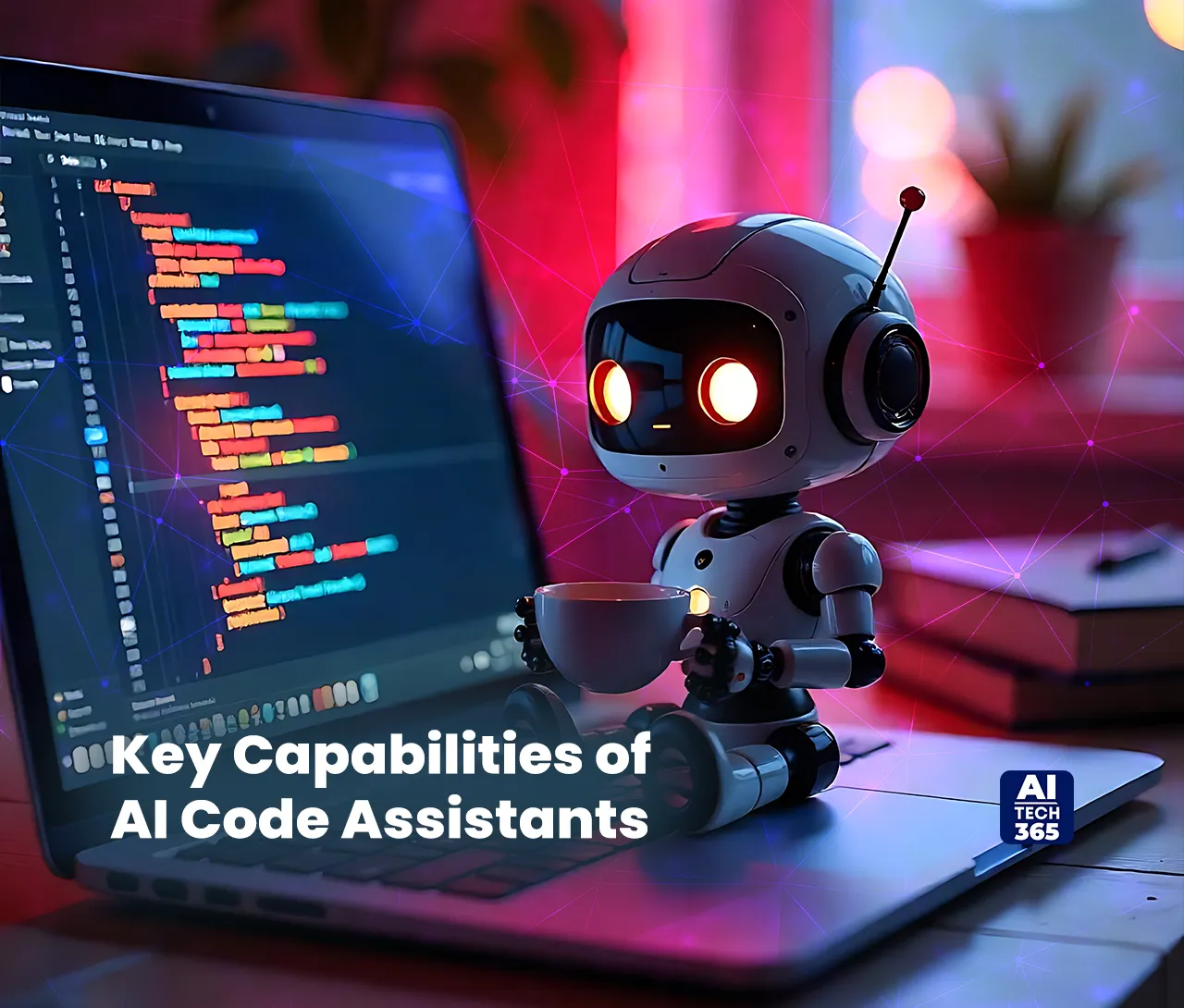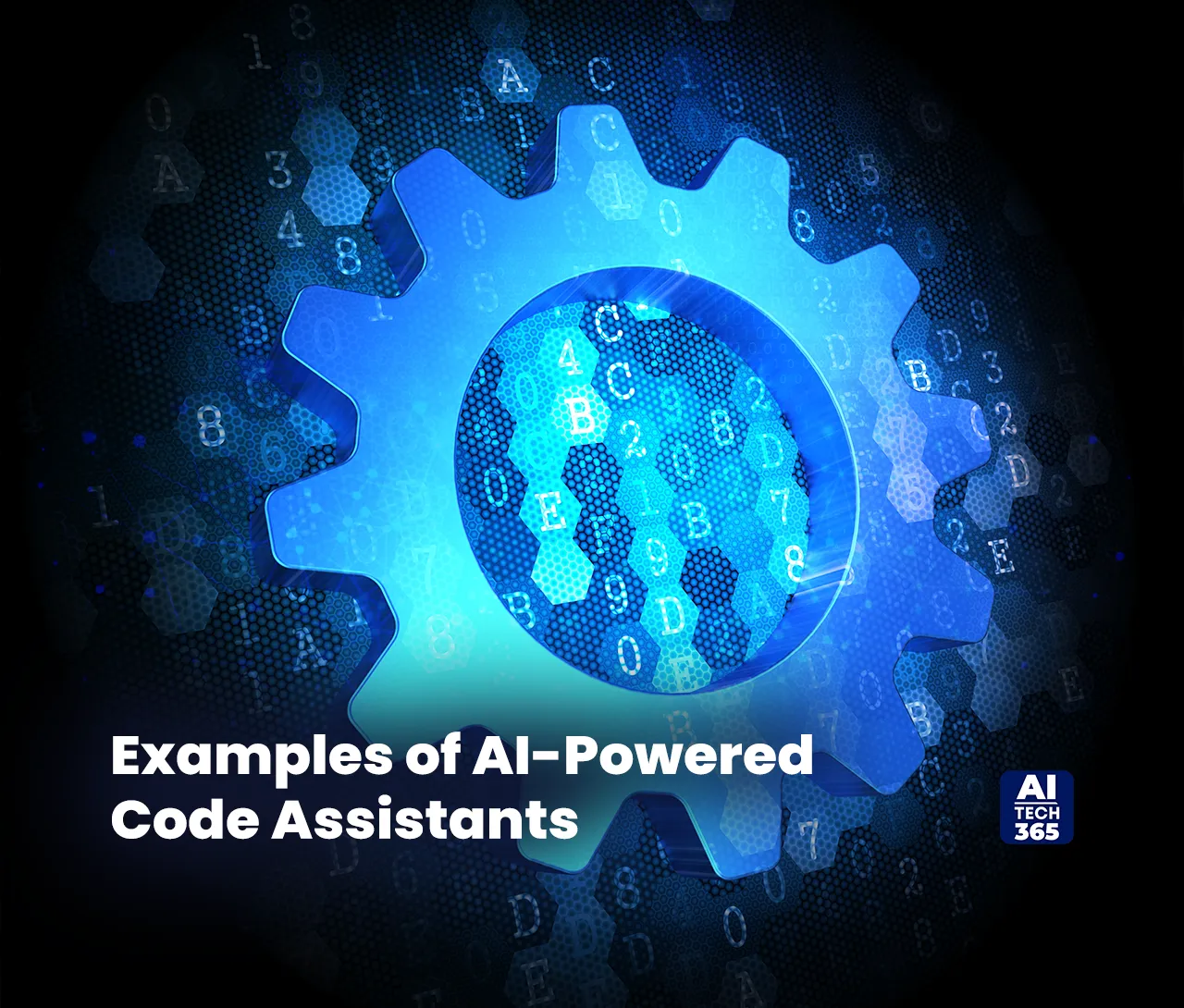In the bustling world of software development, efficiency and precision are essential. Developers face a relentless race to produce high-quality code swiftly, often juggling intricate projects and a plethora of programming languages. Amidst evolving frameworks and tight deadlines, AI-powered code assistants come into play. These intelligent allies boost productivity, streamline workflows, and simplify the coding journey for aspiring developers. But what are these remarkable AI assistants, and how can they reshape the landscape of coding?
This article explores AI-powered code assistants. It covers their abilities, benefits, and challenges. It also looks at their promising future. We’ll explain the key concepts. We’ll give real-world examples. And, we’ll provide tips to help you use these tools effectively.
What Are AI-Powered Code Assistants?
At their essence, AI-powered code assistants are like digital sidekicks for developers. Harnessing the capabilities of artificial intelligence and machine learning, they help you write, debug, and decipher code. These clever companions elevate coding beyond the basics, providing sharp suggestions and seamless autocompletion. With real-time analysis, they slice through coding tasks, saving time and effort.
These cutting-edge tools tap into the brilliance of AI, trained on a vast ocean of code. They dive into extensive open-source repositories to uncover patterns, syntax, and best practices across programming languages.
With this knowledge, they deliver context-aware suggestions that are not only syntactically correct but also aligned with established coding conventions. Experience a smarter way to code, where precision meets innovation.
Picture this: a wise programmer to assist you in coding activities. They guide you through each twist and turn of coding challenges. Designed to complement, not replace, human talent, they elevate your skills. With their support, your productivity will reach new peaks, transforming the way you code.
Key Capabilities of AI Code Assistants
Here are some of the key features that make AI code assistants so powerful:
- Smart Code Completion: Imagine having a coding partner who’s always one step ahead. As you craft your code, this assistant predicts your next line, function, or even whole blocks. It’s a time-saver that drastically cuts down on errors. More than mere syntax highlighting, it analyzes context and adapts to your patterns, ensuring a seamless coding experience.
- Code Generation: AI assistants streamline your coding routine by generating boilerplate code. From function stubs to class definitions and test cases, they take the tedium out of the process. Plus, they can seamlessly convert code between languages, making your development journey faster and more efficient.
- Error Detection and Correction: Navigate the coding landscape with real-time error detection at your side. Identify pesky bugs and syntax snafus before compiling or executing your code. AI-powered assistants offer quick fixes and helpful insights about errors, transforming challenges into valuable learning instances.
- Code Refactoring: AI assistants guide you on your coding journey. They help to enhance your code’s structure, readability, and performance. With their help, you can craft cleaner, more efficient, and maintainable masterpieces. They tackle tasks like renaming variables, extracting functions, and simplifying those convoluted expressions.
- Documentation Generation: AI auto-generates documentation that demystifies your code. This seamless integration is beneficial for collaborative teams, enhancing clarity and cohesion. Plus, it smooths the onboarding journey for new developers, making their transition effortless. With AI, understanding and teamwork flourish like never before.
- Code Search and Explanation: AI assistants are your go-to companions for understanding natural language queries. They simplify the search for code snippets, library functions, and specific implementations in your project. These helpful tools can also unravel the purpose of any code segment. When you’re up against unfamiliar codebases, their explanations transform confusion into understanding, making your coding journey smoother.
- Integration with Existing IDEs: AI code assistants conveniently appear as extensions for popular IDEs. They blend effortlessly into your current workflow and enhance your coding prowess. This means you don’t have to revamp your setup, instead only enhance your existing toolkit.
The Benefits: Why Use an AI Code Assistant?
The advantages of incorporating AI code assistants into your development process are substantial:
- Increased Productivity: Automating tedious tasks like code completion is a game changer. It allows developers to dive into deeper, more creative waters, where problem-solving flourishes. This turbocharges productivity, leading to a remarkable boost in output. Research reveals that AI code assistants help developers complete tasks 20-50% quicker.
- Reduced Errors and Bugs: Real-time error detection and code analysis are your code’s best friends. They catch bugs before they can sneak into production. This saves valuable debugging time and elevates your code’s quality significantly. A smoother process means a more polished product.
- Accelerated Learning: AI assistants act like mentors in the coding world. They offer real-time feedback, simplifying the journey for junior developers seeking best practices. This innovation enables all developers to effectively share their talents and ideas.
- Improved Code Quality: AI-powered refactoring and style suggestions make it easier for developers to write cleaner, more maintainable code, boosting project efficiency and leading to long-term benefits.
- Seamless Synergy: With AI-generated documentation and code breakdowns, developers unite effortlessly on large projects.
- Swift Launch Advantage: AI code assistants turbocharge the development process, enabling teams to deliver software in record time, outpacing the competition.
- Reduced Cognitive Load: By shouldering the memory weight of coding, AI frees developers to dive into problem-solving, fresh ideas, and creative thinking—keeping burnout at bay.
Also Read: Definition, Risks, and Detection of Shadow AI in Enterprises
Examples of AI-Powered Code Assistants
Several excellent AI code assistants are available today. Here are some of the most popular:
- GitHub Copilot: GitHub Copilot: Crafted by GitHub and OpenAI, Copilot is the coder’s best friend. This AI marvel seamlessly embeds itself into your favorite IDEs. With a model trained on billions of code lines, it delivers sharp, clever suggestions. From autocompletion to code generation, it’s at your service. Developers trust Copilot for its remarkable reliability and effectiveness, elevating their coding game to new heights.
- Tabnine: Tabnine is another popular AI code assistant that is available as a plugin for various IDEs. It offers code completion, error detection, and real-time code analysis capabilities. Tabnine also emphasizes data privacy, allowing users to keep their code models private.
- Amazon CodeWhisperer: This tool is particularly integrated with AWS services. It offers code recommendations and suggestions, specializing in AWS API calls and workflows. CodeWhisperer also provides security recommendations, alerting developers to potential vulnerabilities in their code.
- Replit Ghostwriter: Replit’s offering aims to be a collaborative coding platform enhanced by AI assistance, helping developers debug, write, and refactor code within the platform. It’s designed to lower the barrier to entry for new developers.
Use Case Scenarios
Here are some scenarios illustrating the benefits of using these AI assistants:
- Building a Web Application: An AI assistant can quickly generate HTML, CSS, and JavaScript boilerplate code, allowing developers to focus on the application’s logic and features.
- Data Analysis: When processing data using Python and libraries like Pandas and NumPy, AI assistants can suggest data manipulation commands, visualizations, and even create machine learning models.
- API Integration: AI can auto-complete API calls and function signatures, reducing the time spent searching documentation and preventing common mistakes.
- Developing Unit Tests: AI tools can quickly create unit tests for new features or updates, helping ensure code quality and catching errors early.
- Debugging Complex Algorithms: AI assistants can analyze code and suggest areas where logic errors may exist, assisting in a rapid diagnosis of errors.
- Learning a New Language: By providing real-time feedback and suggestions, an AI assistant can act as a tutor for developers learning a new programming language.
Challenges and Considerations
While AI code assistants are revolutionary, there are challenges to address:
- Over-reliance: Developers might become too dependent on AI suggestions, potentially hindering their learning and problem-solving skills. It is important to treat these tools as assistants and not replacements for critical thinking.
- Code Quality: While AI can generate code quickly, it might not always produce the most efficient or optimized code. Human oversight is still needed for ensuring code quality, best practices, and addressing edge cases.
- Bias in Code: If the AI model is trained on biased data, it may propagate biases in the code it generates. Developers must be aware of this and be vigilant in reviewing AI-suggested code.
- Cost: Some AI code assistants come with a subscription fee, which may be prohibitive for some individual developers or small teams.
- Security Concerns: Code generated by AI might contain security vulnerabilities, requiring developers to double-check for potential risks.
- Context Limitations: AI models might not fully grasp the context of the entire project or business requirements, requiring human input and direction.
Tips for Effectively Using AI Code Assistants
Here are some practical tips to help you make the most of AI code assistants:
- Start Gradually: Begin using the assistant for specific, well-defined tasks and expand its use as you become more comfortable.
- Always Review the Code: Do not blindly trust the AI’s suggestions. Carefully review and understand every line of code it generates to ensure correctness and quality.
- Use the Assistant as a Learning Tool: When an AI assistant offers a suggestion or explanation, take the time to understand it. This will accelerate your learning and improve your coding skills.
- Focus on the Big Picture: Let the AI handle the repetitive tasks, and focus your efforts on higher-level architectural design, problem-solving, and creative solutions.
- Provide Clear Instructions: When using code generation features, provide clear and specific instructions to the AI, helping it generate more accurate and useful code.
- Stay Informed: Continuously update your knowledge about new features, best practices, and limitations of the AI code assistant you use.
The Future of AI-Powered Code Assistants
The field of AI-powered code assistants is rapidly evolving. We can expect to see even more sophisticated tools in the future, including:
- More Context-Aware AI: AI models that understand the entire project’s context and business goals, offering even more relevant code suggestions.
- Advanced Code Refactoring: Tools that can optimize entire codebases, improve performance, and enhance maintainability with minimal human intervention.
- AI-Driven Debugging Tools: Enhanced debugging tools that can identify complex bugs and provide specific solutions.
- Integration with AI Testing Platforms: AI platforms that can automatically generate test cases, run tests, and identify errors.
- Personalized AI Code Assistants: Tools that adapt to an individual developer’s style and preferences over time, becoming personalized coding partners.
Conclusion
Code assistance with artificial intelligence (AI) capabilities are transforming software development. They increase the learning, productivity, and efficiency of developers. The development process is improved by these technologies rather than being a substitute for human developers. Developers may leverage AI to create better software more quickly by comprehending and embracing its possibilities. Software development is changing as we enter the age of intelligent coding companions.


